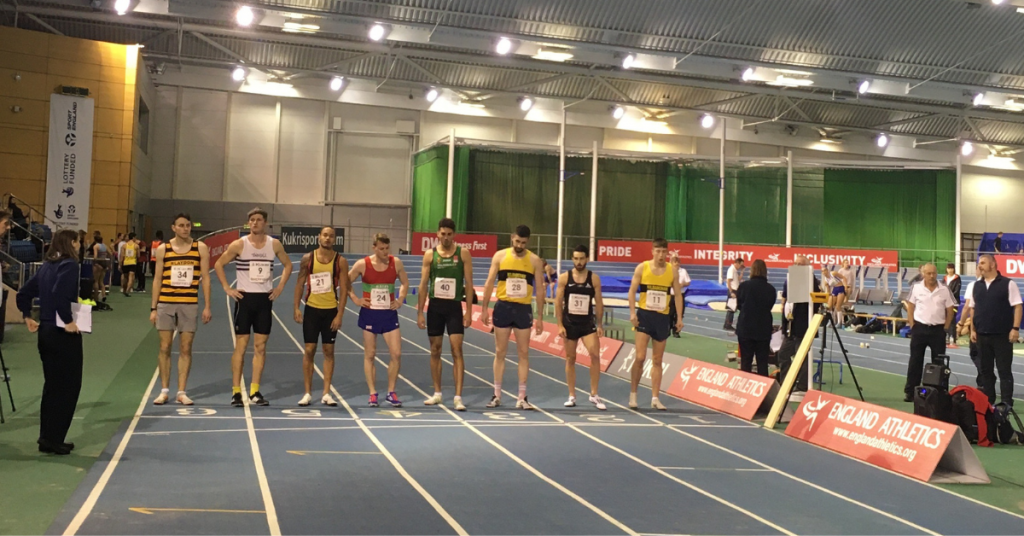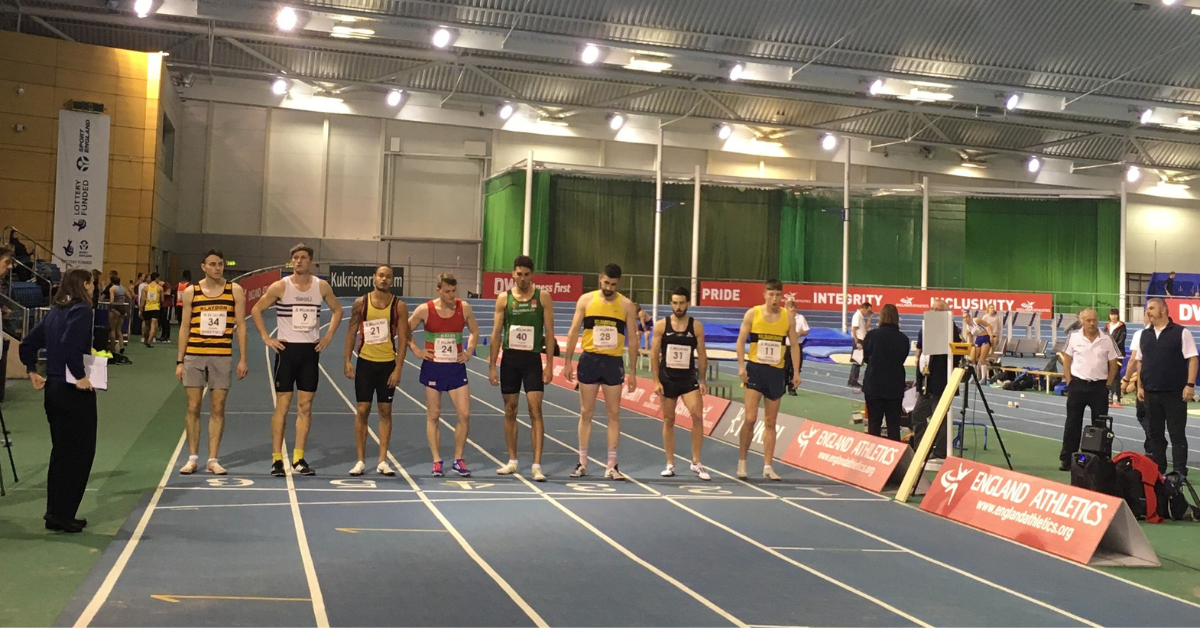There’s been something in the air of late in UK combined events.

An edge, a heightened confidence, a sense of grit. Athletes stepping up into international competitions, holding their own and demonstrating that they deserve to be there.
That edge was there in Holly Mills’ duel with Adrianna Sułek in Tallinn in February 2022, and in her 800m-front-running to come so close to a World medal in Belgrade in March.
The confidence was evident in Harry Kendall’s sass at the Commonwealth Games in Birmingham in August, stealing the limelight from 8300+ point decathletes Lindon Victor and Cedric Dubler, and continuing to inspire boys and girls long after the Games have passed.
The step-up came for Ella Rush when she was recruited to the mighty University of Georgia, where outstanding US heptathletes Kendell Williams and Anna Hall cut their teeth.
And Lewis Church demonstrated his right to compete alongside Europe’s elite decathletes in his debut at Multistars in April 2022, where he pulled out a 10-second 1500m PB and a 200-point decathlon PB to surpass the England Athletics qualification standard for the Commonwealth Games.
A score that would have put Church inches from 4th place in front of an English crowd at the Games, had he been given the opportunity to repeat it (as he more or less did a few weeks later in September) instead of being inexplicably excluded from the England team.
Despite the ongoing celebration of our all-time greats Dames Jessica Ennis-Hill and Denise Lewis, and the omnipresence of Daley Thompson and Dean Macey as the agreed personification of the spirit of decathlon, the current tranche of UK combined eventers aspiring to join the likes of KJT on the world stage seem to be presented with more barriers than opportunities.
After enjoying the full crowds of the main UK champs in 2022, the multi-eventers have been unceremoniously turfed out of the 2023 national indoor champs.
At the time of writing, it’s not yet clear where anyone who wants to secure national championships ranking points – that can and have been the difference between qualification and non-qualification for major championships – are to compete for the national title in the UK.
For overseas friends bemused by the UK’s complicated constitutional arrangements, the England Athletics combined events championships has been the “unofficial” UK champs when it didn’t really matter who was UK champion for qualification purposes.
British (English, Scots and Welsh) and Northern Irish athletes can compete at the EA champs, and while non-English athletes cannot be crowned English champion, they would traditionally be considered the UK champion if they had finished first in the competition.
However, now that the World Athletics rankings system – flawed as it is – demands a clear national champion for rankings points purpose, it does matter which competition crowns the official UK champion.
It won’t be the main UK Championships on 18-19 February (the deadline weekend for European Indoor Champs qualification) – the multi-eventers have been excluded from that.
It doesn’t appear to be the EA championships this weekend in Sheffield since the competition is only ranked by World Athletics as category “F”. Category “D” is the norm for national championships.
If there is an official source of clarity on this, I’ll be happy to promulgate it.
Either way, there is still some ground to cover to ensure that UK combined eventers are afforded the same level of clarity, opportunity and courtesy as their peers in other events, and not considered as an afterthought. The fact that so many are flourishing despite these disadvantages is to their credit and speaks to their grit.
As the 2022-23 indoor season gets underway, the England Athletics Combined Events champs in Sheffield this weekend is the first significant meeting of the year for UK athletes.
A generous analysis of the line-up can be found on the EA website, but there are a few highlights to note.
Lewis Church, the reigning UK indoor champion, heads the field for the senior heptathlon field. His two 7700+ decathlon scores of 2022 suggest that when fully fit and in-form, he should be able to improve on his 5491 heptathlon PB.
He’s joined by the outdoor 2022 UK champion Elliot Thompson, who has already improved his hep PB by a handful of points to 5421 this season, and the indoor 2022 UK champs bronze medallist Howard Bell.
Sam Talbot does not actually have a senior heptathlon mark on the books, but if he lands one this weekend it could be a good one, given his very promising 7692 decathlon PB at the Bryan Clay decathlon in Azusa last year.
In his final year in the U20 age group, 2022 World U20 champs representative Sammy Ball leads the junior field. The Scots duo of Adam Hoole and Callum Newby are now stepping up into their first year as seniors, Newby already with a 5275 senior score under his belt, so let’s keep an eye on how they progress through that transition.
In the senior pentathlon, there’s a good competition likely between Jo Rowland – who has scored over 4000 points in every year she has finished a pentathlon in the last decade – Wales’ Commonwealth Games representative Lauren Evans and Thorpe Cup siebenkampf regular Laura Voss of Germany, among others.
However, the intriguing development is the participation of Scottish indoor high jump record-holder (1.93m) Nikki Manson. Her other event marks – 9.05 hurdles, 10.97 shot, 5.69 long jump – compare well to marks found around the indoor combined events circuit, so she might just spring a surprise…
The full entry lists can be found here.
By Gabby Pieraccini

